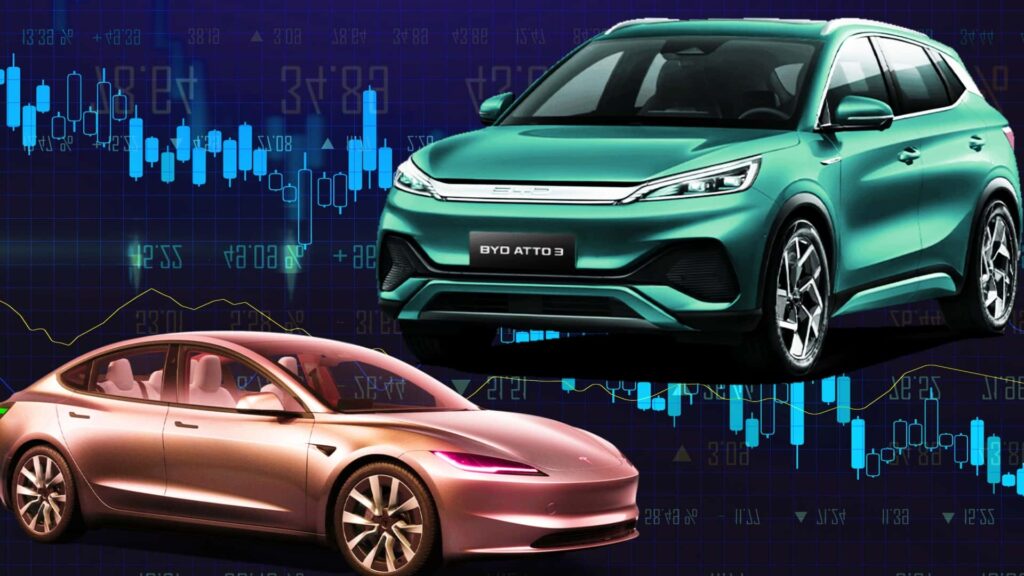Tesla, once the top-selling electric vehicle brand in Europe, is now facing a significant decline in sales. In the first seven months of this year, Tesla experienced a staggering 43.5% drop in sales in the European Union. This decline comes as a sharp contrast to Chinese automaker BYD, which saw a remarkable 250% growth in sales during the same period.
The plummeting sales figures for Tesla can be attributed to a variety of factors, with CEO Elon Musk’s far-right politics being one of them. Musk’s controversial endorsements and public feuds have alienated potential buyers, leading to a negative impact on the brand’s reputation. Additionally, Tesla’s aging lineup, lack of new models, and intensifying competition from European and Chinese brands have also contributed to the decline in sales.
In contrast, BYD is experiencing a surge in sales, solidifying its position as the world’s largest EV manufacturer. The Chinese automaker witnessed a 251% increase in registrations in Europe from January to July, further highlighting Tesla’s struggle in the market.
As Tesla navigates through these challenges, the company is shifting its focus towards AI and robotics, moving away from its core passenger vehicle business. However, these strategic shifts may take time to materialize, and it could be years before Tesla sees the desired results. The recent regulatory changes, including the expiration of the federal EV tax credit in the U.S., pose additional challenges for Tesla in the coming months.
Despite these hurdles, Tesla remains a key player in the EV market, and the company’s future success will depend on its ability to adapt to changing market dynamics and consumer preferences. As the EV landscape continues to evolve, Tesla will need to innovate and differentiate itself to regain its competitive edge in the global market.

